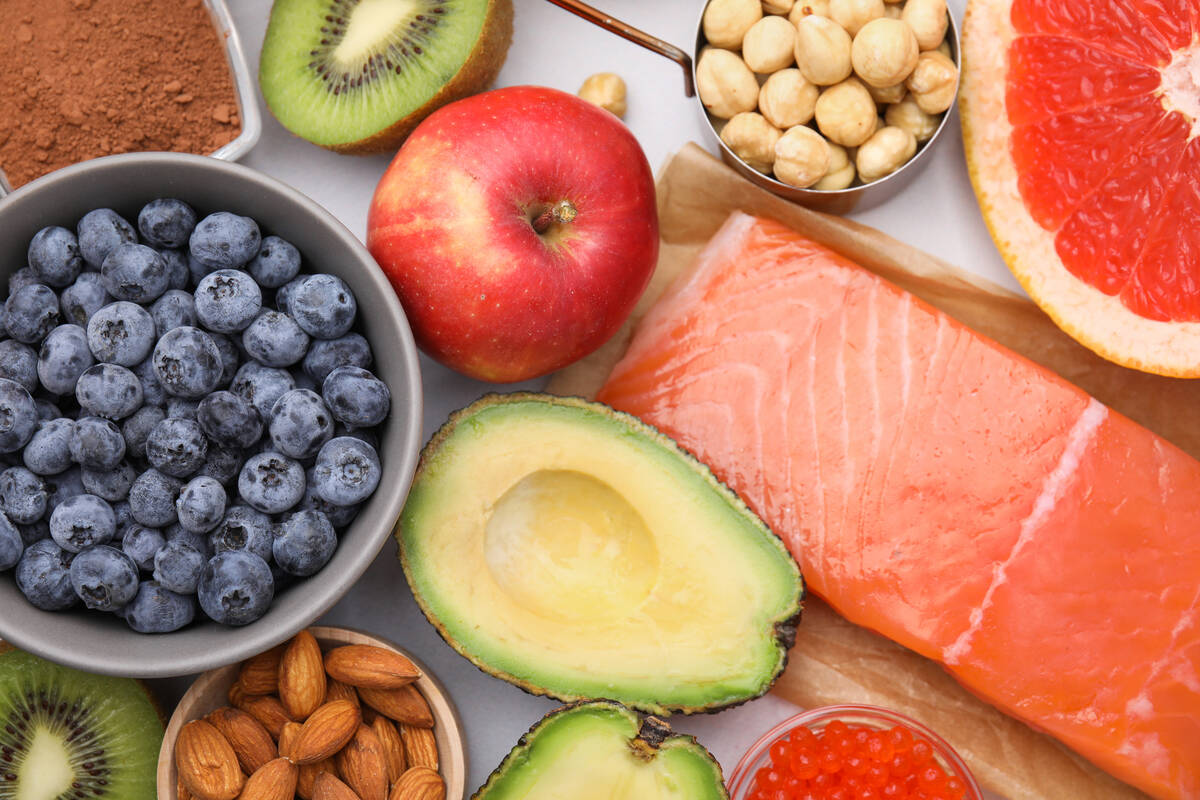What to eat, and what to avoid, to keep your brain healthy
The human brain is the center of our nervous system, responsible for controlling all other body organs and storing our memories. Studies show that there are specific foods we should eat and avoid to keep our brains healthy and running at peak performance.
Contrary to the myth that people only use 10 percent of their brains, we use all parts every day.
Our brains are even active when we sleep, playing a role in the quality of our sleep.
If you’ve ever heard the term “biological clock,” that’s simply a part of the brain that works overtime to keep the whole system in order.
“Our brains are organs, so just like our heart and lungs, the brain benefits from quality sleep, regular exercise, healthy foods and low stress,” says Dr. Samara Sterling, a nutrition scientist. “It’s important to take care of the brain so it can operate at peak performance and continue to efficiently control and regulate the body.”
Foods for brain health
Certain foods have nutrients that help keep the human brain healthy, including fish rich in omega-3 fatty acids, blueberries, dark chocolate, avocados and red cabbage.
“I try to make sure we get fish twice a week and avoid sugary foods, which consistently leave me feeling like I’ve got ‘brain fog,’ ” says Anna Chelsey, from the lifestyle blog Salt in My Coffee. “I’m much more mentally acute and emotionally resilient when I’m staying away from sweets!”
Foods to avoid
According to a recent study by the American Academy of Neurology, people who eat more ultraprocessed foods may have a higher risk of developing memory and thinking problems. They’re also more prone to stroke than those who eat fewer processed foods.
Ultraprocessed foods are high in added sugar, fat and salt while having low protein and fiber content. These foods include soft drinks, salty and sugary snacks, ice cream, canned baked beans, ketchup, mayonnaise, packaged bread, and flavored cereals. Unprocessed or minimally processed foods include meats such as simple cuts of beef, pork and chicken and vegetables and fruits.
“While a healthy diet is important in maintaining brain health among older adults, the most important dietary choices for your brain remain unclear,” explains study author Dr. W. Taylor Kimberly, of Massachusetts General Hospital in Boston. “We found that increased consumption of ultraprocessed foods was associated with a higher risk of both stroke and cognitive impairment, and the association between ultraprocessed foods and stroke was greater among Black participants.”
Iva Ursano, from the meal planning website On and Off Keto, has a one-word answer when asked about which food to avoid to keep one’s brain healthy, echoing the findings of the American Academy of Neurology study.
“Sugar!” she says. “It’s the devil and will mess you up.”
“Sugar is definitely a no-no for me,” agrees Tiffany McCauley, of the Gracious Pantry clean eating guide. “I try to use flaxseed and chia seeds as often as possible, and I eat salmon and berries as often as I can. I also take an omega-3 supplement.”
A good night’s sleep
Sleep is an important component for keeping our brains healthy and our minds sharp. While the body is at rest during periods of sleep, the brain recharges, reorganizes, and removes toxic waste accumulated throughout the day.
Without enough sleep, the brain struggles with concentrating, memory, and responding quickly. How much sleep a person requires ranges from seven to eight hours for older adults to nine to 11 hours for teenagers. In general, a minimum of seven hours is recommended.
“Research has found that sleep helps improve memory recall, reduces mental fatigue, and regulates metabolism,” says Sterling. “In addition, sleep benefits the entire body since it promotes growth in children and teens, aids heart health in adults, and keeps the immune system strong for everyone.”
Your brain needs exercise
Regular mental activity benefits overall brain health. According to Harvard Health, researchers concluded that stimulating the brain promotes new connections between nerve cells and may even help generate new ones.
Crossword puzzles, card games, Sudoku, memory quizzes and other activities that use math, logic and word processing are good brain “benders.” However, it’s essential to do a variety of exercises to continue to activate and push the brain, so it must engage and work hard to complete new tasks.
Physical exercise, too
A number of studies have found that the parts of the brain that control thinking and memory have greater volume in people who exercise. For those concerned about Alzheimer’s, an analysis of 16 studies with more than 160,000 participants identified a 45 percent reduction in the risk of developing the disease for those who engaged in regular physical activity.
Research published in the Journal of Sport and Health Science in 2020 pinpointed that those who are in the early to middle stages of Alzheimer’s disease benefit from activities that get the heart pumping or involve resistance, such as brisk walking, swimming and light strength training.
The brain also benefits from a combination of learning that’s paired with physical activity. For example, take up a new musical instrument, master an unfamiliar dance or tackle an untried exercise like tai chi, yoga or Pilates.



















